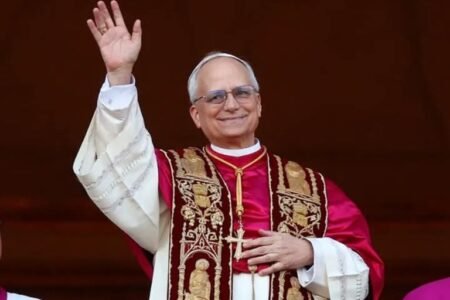The Presidency argued on Sunday that organised labour’s N250,000 minimum wage demand is unsustainable, saying that the Federal Government cannot divert all of its resources to satisfy such a request.
The warning comes two days after the Association of Local Governments of Nigeria expressed concerns about the N62,000 suggested by the federal government.
The ALGON warned that if adopted, the wage might place pressure on council finances.
On Tuesday, May 28, negotiations between the Federal Government and Organised Labour broke down after the government and the Organised Private Sector boosted their proposals to N62,000.
However, labour groups denounced the idea as an insult to the brains of the average Nigerian worker, who deserves far better than what the government gave.
In an interview, President Bola Tinubu’s Special Adviser on Information and Strategy, Bayo Onanuga, revealed that unless the Nigeria Labour Congress and the Trade Union Congress were selfish, they should consider that resources meant for all Nigerians could not be channelled solely to the benefit of their members, who account for less than 10% of the total population.
He said, “That is why we keep telling labour to be realistic because the government cannot use all its resources to pay workers. They have other things to do. The workers we are even talking about are not up to 10 percent of the population. Many people are self-employed or engaged in the private sector who are not members of Labour and are not affected by this demand.
“This is even more reason why labour has to reconsider their decisions critically instead of always striving to shut down the system. What the federal government did was in consultation with the private sector and others. Only Labour, which appears to be in the minority, kept saying they wouldn’t accept N62,000. They are not even employers, but employees.
“Let us wait and hear what they are going to say after their return from the ILO conference. But they have to be realistic.”
During his Democracy Day speech, Tinubu announced that an executive bill establishing a new national minimum wage for workers would be sent to the National Assembly.
When asked about the timing, Onanuga stated that the bill is expected to be transmitted after the Sallah break.
The presidential communications aide also stated that the Federal Government may not meet with Labour leaders again unless something compelling emerges.
“I am not certain when he plans to do it (Bill). It may be after Sallah. But I am not sure whether the FG is meeting with them or whether its position on the minimum wage has changed. Don’t forget that the current amount on the table was arrived at by the committee that also has the private sector, where the NECA and NACIMMA were also represented.
“That was the figure the FG delegation, sub-nationals, employers, NECA, and other sectors agreed on. So, the FG cannot just decide on any other amount of money on its own without carrying these people along. And the government cannot just decide anything without ensuring that the state and local governments are able to pay,” he said.
Attempts to reach labour leaders on Sunday were futile, as close sources told our correspondents they were on their way back to the country from a recent trip to Geneva for the International Labour Organisation conference.
Meanwhile, the federal government-appointed tripartite committee to evaluate the minimum wage has encouraged trade unions to reconsider their pay expectations.
Speaking with NAN on Sunday, the committee’s chairman, Bukar Aji, urged labour to reassess their position in light of economic factors and non-monetary incentives provided by the government.
Aji highlighted several government incentives, including a N35,000 wage award for all treasury-paid federal workers, N100 billion for gas-powered buses and gas kit conversions, a N125 billion conditional grant, financial inclusion for small and medium-sized businesses, and a N25,000 monthly stipend for 15 million households over three months.
He also mentioned N185 billion in palliative loans to states to offset the effects of the elimination of petrol subsidies, N200 billion to promote agricultural production, N75 billion to strengthen the manufacturing sector, and N1 trillion for student loans, among other initiatives.
Aji urged trade unions to consider adopting the Federal Government’s N62,000 minimum wage offer.
He stated that the group was attempting to avoid a situation in which the minimum wage would result in additional job losses, particularly because many firms are already struggling.










